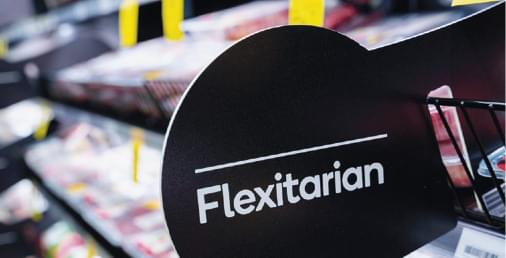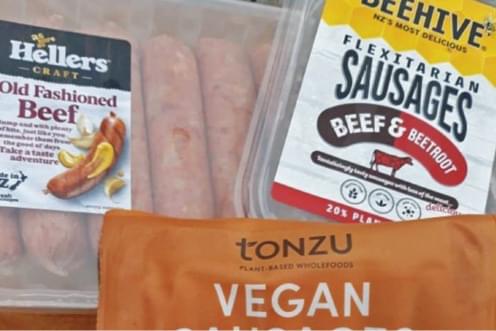Magazine: Targeting flexitarian consumers: Few vegans, much more flexitarians
As part of the Smart Protein project, in the summer of 2021 7,500 consumers from 10 European countries (including Romania and Poland) answered questions about their attitude toward eating plant-based foods, how much they trust these product, what their consumption habits are at the moment, and what factors influence their food choices. It must be noted that the respondents are fully or mainly responsible for doing the grocery shopping in their families.

Guest writer:
Réka Szöllősi
food policy analyst
elelmiszervilag.hu
From the respondents 7% said they are vegan and 30% follow a flexitarian diet. The highest proportions of flexitarians are based in the Netherlands and Romania; actually Romanian consumers are very open to eating plant-based foods in general. Since 90% of those who eat plant-based foods aren’t vegan or vegetarian, the report focuses on flexitarians. According to a Euromonitor study from 2020, at a global level 42% of consumers are flexitaraian.
Revealing numbers: more conscious European consumers
It is noteworthy that nearly 40% of the survey’s participants plan to eat less meat in the near future, and 46% of these people have already cut down on their meat consumption, while 30% intend to have less milk and dairy products. From those who claimed that they are flexitarian, 73% have already reduced their meat consumption.

According to Euromonitor’s research in 2020 42 per cent of consumers in the global market are considered to be flexitarian, who aspire to reduce the share of animal-based food in their diet, still are omnivorous
61% of flexitarians think that plant-based proteins are safe and are adequately indicated on product labels. Among flexitarians the two most popular plants are potato and rice, followed by lentil, almond and chickpea. Based on the results of the survey, it seems that flexitarians want to see plant-based poultry, beef, salmon and tuna alternatives the most on store shelves. As for cheese substitutes, shoppers demand plant-based mozzarella and sliced cheese the most. Taste and health considerations, freshness, being additive-fee and good price – these are the most important factors based on which consumers choose plant-based foods.

Potatoes and rice are the two plant-based ingredients that flexitarians like the most
Lessons to be learned for companies
The survey has made it clear that a large proportion of European meat eaters understand the significance of switching to a more sustainable and healthier diet, and the majority of flexitarians plan to make further cuts in the amount of animal-based food they eat. However, plant-based foods can only become more popular if grocery stores will sell more pre-packaged plant-based groceries and restaurants will start serving more such dishes. Consumers think there isn’t enough information available to them about this food category.

Consumers would be happy with a price decrease, and do not consider the information flow about the category satisfactory
Related news
DairyX makes a breakthrough in dairy-free casein production
Israeli start-up DairyX Foods has made great progress in the…
Read more >DélKerTÉSZ: record quantities of Hungarian vegetables in supermarkets
DélKerTÉSZ sold a record volume of Hungarian vegetables to domestic…
Read more >Impossible Foods rolls out family-friendly products in the US
Impossible Foods has added three new products to its offering…
Read more >Related news
The Joy of Giving! – SPAR stores collect non-perishable food for people in need
The Hungarian Maltese Charity Service and SPAR Hungary have launched…
Read more >Technological advancements and business travel
The latest research from International Workplace Group (IWG), the leading…
Read more >K&H: a gift, but what and from which store?
When it comes to Christmas gift-giving, clothes are the most…
Read more >






